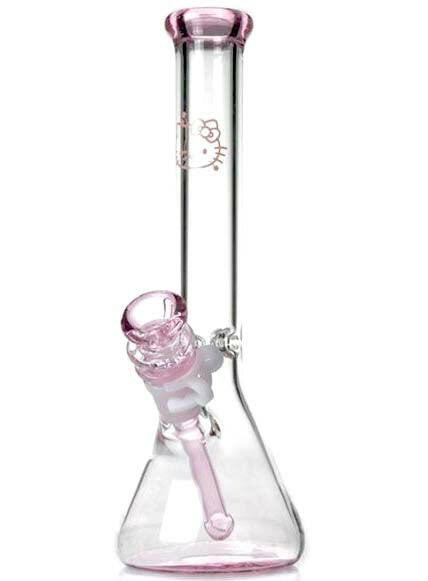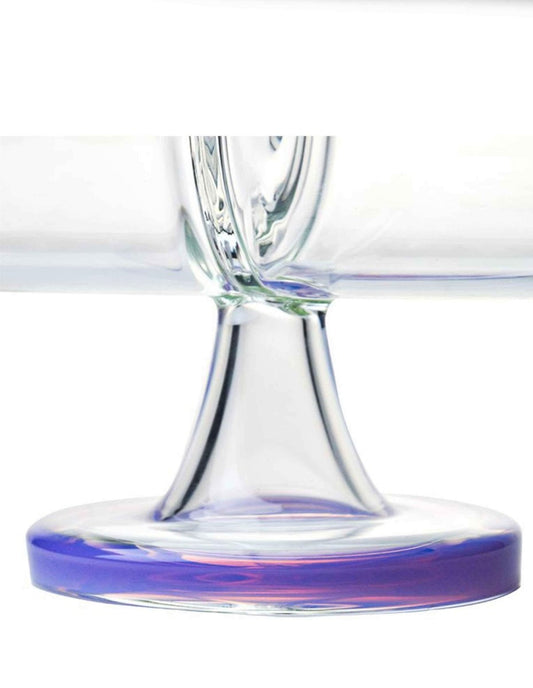Did Jesus use Cannabis ?
The evidence available indicates that Jesus used cannabis.
Here is what Professor of Classical Mythology at Boston University Carl Ruck, has written:
"Cannabis is called kaneh bosem in Hebrew, which is now recognized as the Scythian word that Herodotus wrote as kannabis (or cannabis). The translators of the bible translate this usually as ‘fragrant cane,’ i.e., an aromatic grass. Once the word is correctly translated, the use of cannabis in the bible is clear. Large amounts of it were compounded into the ointment for the ordination of the priest. This ointment was also used to anoint the holy vessels in the Inner Sanctum or Tabernacle (‘tent’). It was also used to fumigate the holy enclosed space. The ointment (absorbed through the skin) and the fragrance of the vessels (both absorbed by handling and inhaled as perfume) and the smoke of the incense in the confined space would have been a very effective means of administering the psychoactive properties of the plant. Since it was only the High Priest who entered the Tabernacle, it was an experience reserved for him, although as the chrism of priestly ordination it was probably also something experienced in a different way by the whole priesthood. This same psychoactive chrism was later used for the coronation of the kings.
"Jesus was probably trained as an Essene before the years of his proselytizing. The Essenes were known as healers and had extensive knowledge of drug plants. It is highly likely that Jesus experienced psychoactive sacraments. Since healing medicines were commonly compounded as oils, it is quite probable that the healing performed by Jesus involved administering the traditional Essene herbal pharmaceuticals, which would have, and in fact did on the basis of archaeological remains, included cannabis. One must remember also that the gospel account of his ministry is partly mythologized and certainly reworked from earlier documents. Healings recorded as miracles may well have involved skills of a physician. "Additionally, Jesus was called the ‘Christ,’ which means that he was ‘anointed.’ The chrism of his anointment would have been the one described above for the Jewish ordination, which is to say, Jesus would have to have experienced the effect of cannabis. The biblical account of this chrismation is the encounter with John the Baptist at the River Jordan. It is the effective cause of the ensuing vision of the opened heavens, which can only be termed a mystical experience. The bible also seems to state that Jesus did not abide by the traditional reservation of this ointment for the priests and the elite, but that he shared it with the commonality of his followers.
You have an anointing from the Holy One, and all of you know the truth. The anointing you received from him remains in you, and you do not need anyone to teach you. But as his anointing teaches you about all things, as that anointing is real, not counterfeit—just as it has taught you, remain in him. —I John 2:27.
"It is the common Gnostic pattern that the experience of the psychoactive sacrament confers Knowledge.
"As for the use of psychoactive sacraments by the early converts to Christianity, there were various forms of the communal meal or Eucharist, and archaeological evidence indicates that at least some of the meeting halls were intended for rituals of chemically altered consciousness. As Christians or followers of the Anointed One, the chrism prescribed in the bible would be an obvious choice, although other ‘drugs’ borrowed from other competing religions would also be involved."
More pointedly, in response to Tim Oniell's's answer below, (Tim had my original answer removed and hid my comments on his), and his statement: "The errors and leaps of logic in this guy's silly theory are many. Firstly, most of his theory seems to be based on the idea that "anointing oil" was somehow cannabis-based, for which there is zero evidence. I hate to break it to this stoner, but it was simply olive oil."
That is not true by any standard, and this demonstrates Tim's confusion on the matter, the recipe in Exodus 30:23 for the Holy anointing oil clearly calls for more than olive oil, no question there. Many scholars believe the Hebrew term keneh bosem that appears in the recipe is a reference to cannabis, that was later mistranslated, when the texts were taken into Greek.
Here is one of Anthropologist Sula Benet’s, original articles regarding the keneh
bosem theory http://books.google.ca/books?id=...
As Sula Benet herself notes: “In the original Hebrew text of the Old Testament there are references to hemp, both as incense, which was an integral part of religious celebration, and as an intoxicant” (Benet 1975: 1936). Through comparative etymological study, Benet documented that in the Old Testament and in its Aramaic translation, the Targum Onculos, hemp is referred to as keneh bosem (variously translated as kaneh bosem, kaniebosm, q’neh bosm ) and is also rendered in traditional Hebrew as kannabos or kannabus. The root “kana” in this construction means “cane~reed” or “hemp”, while “bosm” means “aromatic”. This word appeared in Exodus 30:23, whereas in the Song of Songs 4:14, Isaiah 43:24, Jeremiah 6:20, Ezekiel 27:19 the term keneh (or q’aneh) is used without the adjunct bosem.
Anthropologist Vera Rubin http://www.thereedfoundation.org...
noted, that cannabis “appears in the OLD TESTAMENT because of the ritual and sacred aspect of it” (Rubin 1978).
The German researcher Immanuel Low, in his DIE FLORA DER JUDEN (1926\1967) identified a number of ancient Hebrew references to cannabis, here as an incense, food source, as well as cloth, noting the keneh, and keneh bosem references amongst others in this regard, independent of Benet . Interestingly, Immanuel Löw, referred to an ancient Jewish Passover recipe that called for wine to be mixed with ground up saffron and hasisat surur, which he saw as a “a kind of deck name for the resin the Cannabis sativa” (Low, 1924). Low suggests that this preparation was also made into a burnable and fragrant concoction by being combined with Saffron and Arabic Gum (Low, 1926\1967).
Rabbi Aryeh Kaplan, a noted American Orthodox rabbi and author. In THE LIVING TORAH, Kaplan notes that “On the basis of cognate pronunciation and a Septuagint reading, some identify Keneh bosem with English and Greek cannabis, the hemp plant” (Kaplan, 1981). http://www.mondialvillage.com/th...
Rabbi Aryeh Kaplan has also noted of early Kabalistic magical schools who used magic and other means of communion for mystic exploration, that “some practices include the use of ‘grasses,’ which were possibly psychedelic drugs” (Kaplan, 1993). The Kabalistic text the Zohar records:
“There is no grass or herb that grows in which G-d’s wisdom is not greatly manifested and which cannot exert great influence in heaven” and “If men but knew the wisdom of all the Holy One, blessed be He, has planted in the earth, and the power of all that is to be found in the world, they would proclaim the power of their L-rd in His great wisdom.” (Zohar.2,80B) Like the Zoroastrian royalty and priesthood, there are indications that early Kabbalists enjoyed the use of the herb, but prevented its consumption by the common people. In the P'sachim, “Rav Yehudah says it is good to eat... the essence of hemp seed in Babylonian broth; but it is not lawful to mention this in the presence of an illiterate man, because he might derive a benefit from the knowledge not meant for him.- Nedarim, fol. 49, col. 1” (Harris, et al., 2004). Other sources have noted a Kabbalistic comparison to the effects of cannabis with divine perception, noting an “intriguing reference to cannabis in the context of a fleeting knowledge of God: Zohar Hadash, Bereshit, 16a (Midrash ha-Ne’elam)” (Gross, et al., 1983). Thus, evidence for the use of cannabis in Jewish mysticism does exist,and this fits in well with the suggestions for the role of keneh in pre-reformation Israel and Judea.
In 1980 the respected anthropologist Weston La Barre (1980) referred to the
Biblical references in an essay on cannabis, concurring with Benet’s earlier
hypothesis. In that same year respected British Journal New Scientist also ran a story that referred to the Hebrew OLD TESTAMENT references: “Linguistic evidence indicates that in the original Hebrew and Aramaic texts of the Old Testament the ‘holy oil’ which God directed Moses to make (Exodus 30:23) was composed of myrrh, cinnamon, cannabis and cassia” (Malyon & Henman 1980).
As well, William McKim noted in DRUGS AND BEHAVIOUR, “It is likely that the
Hebrews used cannabis... In the OLD TESTAMENT (Exodus 30:23), God tells Moses to make a holy oil of ‘myrrh, sweet cinnamon, kaneh bosem and kassia’” (McKim, 1986).
A MINISTER’S HANDOOK OF MENTAL DISORDERS also records that “Some scholars believe that God’s command to Moses (Exodus 30:23) to make a holy oil included cannabis as one of the chosen ingredients” (Ciarrocchi, 1993).
Independent support for Benet’s view of the Semitic origins of the term kaneh
can be found in THE WORD: THE DICTIONARY THAT REVEALS THE HEBREW SOURCE OF ENGLISH, by Isaac E. Mozeson. In reference to Hebrew kaneh, Mozeson follows a similar view to Benet’s that the “so-called IE root kanna... is admitted to be “of Semitic origin”....the IE word kannabis (hemp - a late IE word borrowed from an unknown source)” (Mozeson, 1989)....KANBOOS is an early post biblical term for hemp... The word HEMP is traced to Greek kannabis and Persian kannab... The ultimate etymon is conceded by Webster’s to be “a very early borrowing from a non-IE, possibly Semitic language... In seeking related words... consider Aramaic... KENABH... and [Hebrew] KANEH...” (Mozeson, 1989) Interestingly Mozeson makes no reference to calamus in the context of the term kaneh.
There are other problems in Tim O'Neill's answer, but as many of his statements have nothing to do with the actual question asked, and deal with other historical dates that have little to with the question directly, I will omit my responses here and leave them to the comment area.
See also he great keneh debate
More material on Jesus and Cannabis
Book dealing with this







